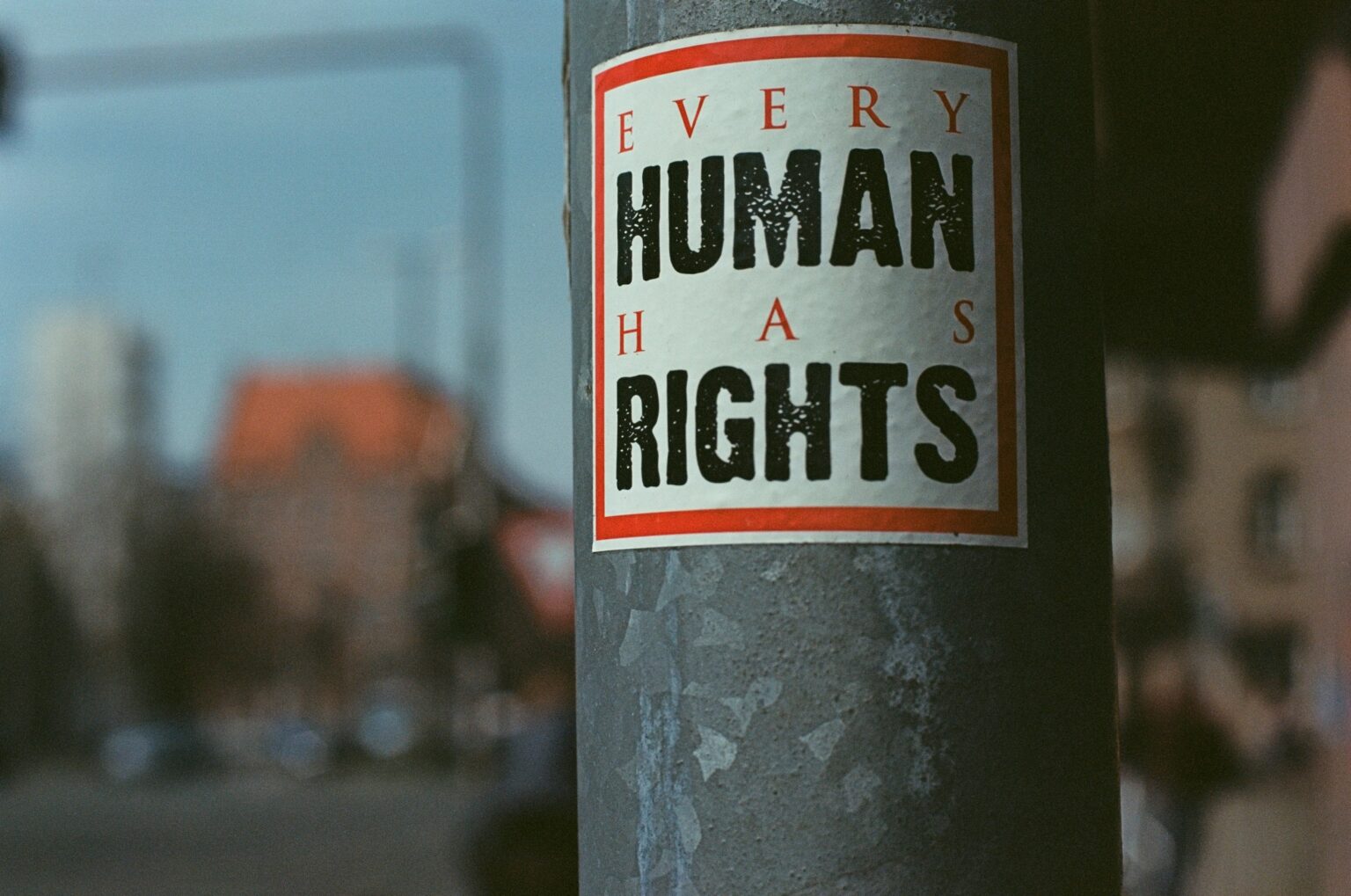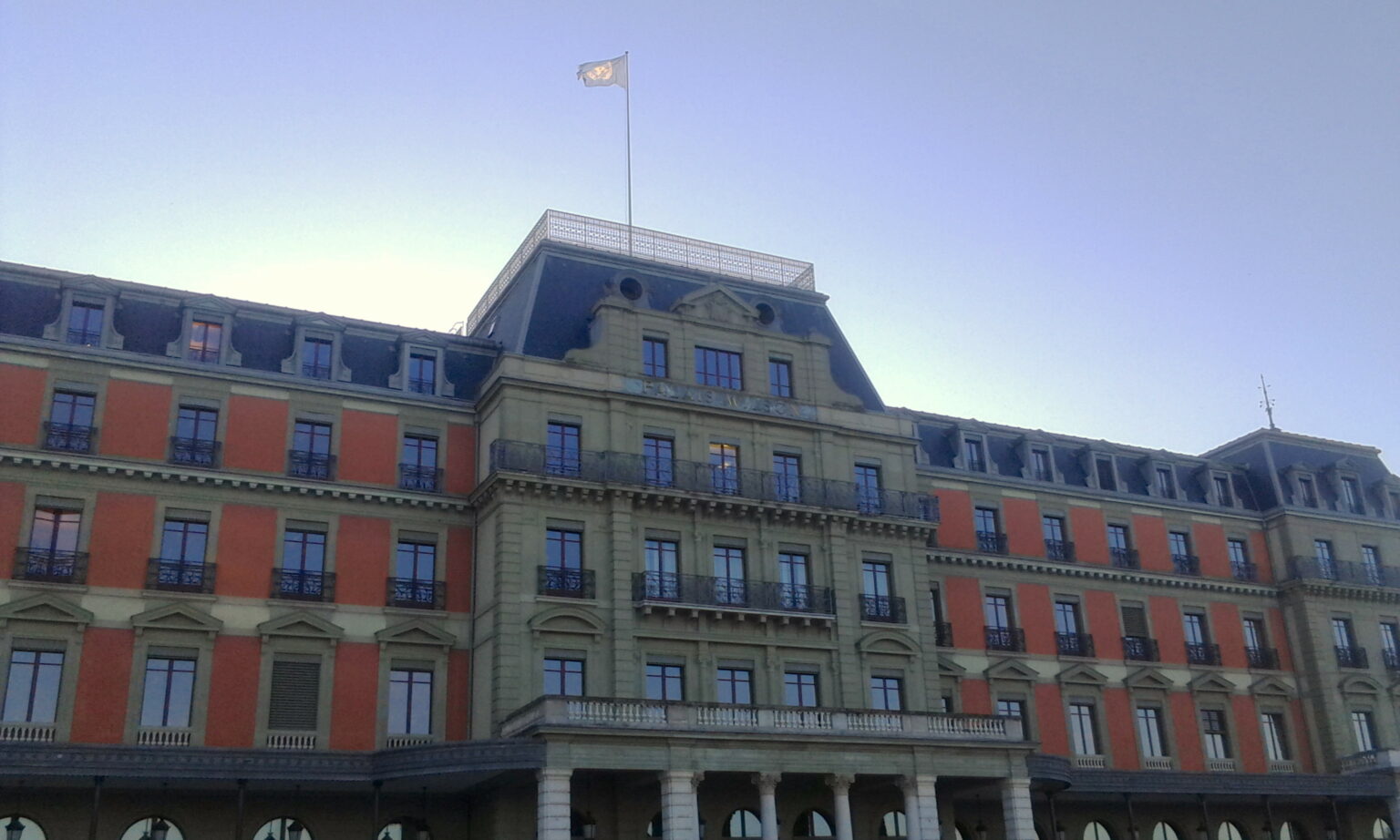UN and EU condemn growing crackdown on LGBTI rights and human rights defenders in Belarus.

The United Nations has condemned increasing violence, discrimination, and hate speech targeting LGBTI people in Belarus, while the European Union has raised the alarm over the escalating repression of human rights defenders, civil society, and independent media in Belarus.
On 3 April, the UN Human Rights Council adopted a resolution on the human rights situation in Belarus. In this document, the UN body deplored the increasing discrimination, violence, and repression against LGBTI persons. Earlier this year, the UN Group of Independent Experts on the Situation of Human Rights in Belarus highlighted restrictions and censorship of LGBTI-related information, violence and intimidation against LGBTI individuals, and the use of anti-LGBTI hate speech by politicians and law enforcement, among many other concerns.
On 2 April, the European Parliament adopted an urgency resolution on the repression in Belarus. Among other measures, it called on the EU and its Member States to increase support for the media, human rights defenders, trade unions, and civil society initiatives operating both within and outside Belarus. It also called for simplified procedures for obtaining visas, residence permits, and provisional identification documents. Furthermore, the European Parliament encouraged governments to disregard the Belarusian government’s requests for the extradition of political opponents and to impose additional sanctions, particularly on officials responsible for transnational repression.
The absence of a legal and policy framework protecting the human rights of LGBTI people is part of a broader pattern of restrictions on fundamental rights and freedoms. Belarus was ranked 44th out of 49 countries in the latest Rainbow Map published by ILGA-Europe. LGBTI individuals in the country are subjected to systemic repression, with their rights systematically targeted using discriminatory laws and acts of violence. Many LGBTI human rights defenders have been forced into exile.
ILGA-Europe will continue to support the Belarusian LGBTI community, including those in exile, in advocating for an end to ongoing human rights violations and the repeal of discriminatory laws, and contributing to the movement’s long-term strength and sustainability.
This year, the government of Belarus is submitting its report under the Universal Periodic Review at the UN Human Rights Council. We call on UN Member States to include in their recommendations the issue of the ongoing persecution of LGBTI individuals, which is embedded within the broader context of political repression in Belarus.
Finland violated rights of a lesbian mothers’ child by rejecting his asylum application, UN finds

The UN Committee on the Rights of the Child found that Finland failed to consider the best interests of the child of a lesbian couple when assessing his asylum request. Now the country is under an obligation to provide reparation.
The UN Committee on the Rights of the Child found that Finland failed to consider the best interests of the child of a lesbian couple when rejecting his asylum request, and to protect him against a real risk of irreparable harm when the family had no other choice but to return to Russia.
“This is a ground-breaking decision: it is the first asylum-related case from the UN system involving a child who is facing specific risks on the grounds of his mother’s sexual orientation, and of the family they form together”, said Kseniya Kirichenko, Programme Coordinator at ILGA World. “This is also the first time that the UN Committee on the Rights of the Child made a decision on sexual orientation issues, and the first case on children in same-sex families in Treaty Bodies’ practice altogether”.
The Committee’s decision was informed by a third-party intervention submitted jointly by ILGA World, ILGA-Europe, the International Commission of Jurists (ICJ), Child Rights International Network (CRIN) and Network of European LGBTIQ* Families Associations (NELFA).
The Committee’s decision concerned an application filed on behalf of A. B., now 11, who had fled Russia together with his mothers after the family faced harassment and threats, and he had started to suffer from bullying and isolation at school. These were the years when regions across Russia had started to introduce so-called “anti-propaganda laws”, which have contributed to an increasingly hostile environment against people of diverse sexual orientations, gender identities and expressions. Legislation that bars “promoting non-traditional sexual relationships” was eventually adopted in 2013 at the national level.
Fearing for their safety, the family fled to Finland, where the child started to attend school, made friends, and no longer had to live in fear of calling both of his parents “mother” and of talking to anyone about his family. However, Finland rejected their application for asylum: authorities recognised the past experiences of threats, bullying and discrimination; nonetheless, they concluded that these could not be considered as amounting to persecution.
The family was left with no other choice but to return to Russia. However, the complaint against Finland reached the United Nations, where in February 2021 the Committee on the Rights of the Child concluded that Finland “failed to adequately take the best interests of the child as a primary consideration when assessing the author’s asylum request based on his mothers’ sexual orientation, and to protect him against a real risk of irreparable harm in case of return to the Russian Federation”.
“This is an important decision, setting out necessary standards for the protection of children in LGBTI families who are at heightened risk of discrimination, especially in countries like Russia, where LGBTI people face stigmatisation and hostilities in their everyday lives”, said Arpi Avetisyan, Head of Litigation at ILGA–Europe. “States must always ensure that the best interests of the child are effectively and systematically taken into account in the context of asylum proceedings, and that they are not discriminated based on their parents’ sexual orientation.”
While finding Finland in violation of articles 3, 19, and 22 of the Convention on the Rights of the Child, the UN committee pointed out that the state “is under an obligation to provide an effective reparation to the author, including adequate compensation.”
The decision has the potential to bring about change. “In the past, we have seen that international decisions on lesbian, gay and bisexual asylum seekers actually led to giving the applicants residency in the respondent States”, concluded Kirichenko. “We hope that Finland will also ensure that this family will be able to come back and to finally have a happy and safe life”.
Notes for editors:
UN Treaty Bodies (Committees): committees of independent experts appointed to review the implementation by State parties of an international human rights treaty.
Committee on the Rights of the Child: part of the UN Treaty Bodies, it is a United Nations body of 18 Independent experts that monitors the implementation of the Convention on the Rights of the Child by its State parties.
More information about Treaty Bodies is available in ILGA World’s annual Treaty Bodies reports and strategic litigation toolkit. Recordings of ILGA World’s webinars on United Nations advocacy, including on Treaty Bodies, are available here.
Additional resources:
Press releases on the case
- Finnish Rainbow Families Association Sateenkaariperheet – Regnbågsfamiljer ry
- Finland’s Ministry of Foreign Affairs
Media contacts:
- Daniele Paletta, ILGA World communications coordinator, media@ilga.org
- Ana Muñoz Padrós, ILGA-Europe communications officer, ana@ilga-europe.org
- Björn Sieverding, NELFA media team, media@nelfa.org